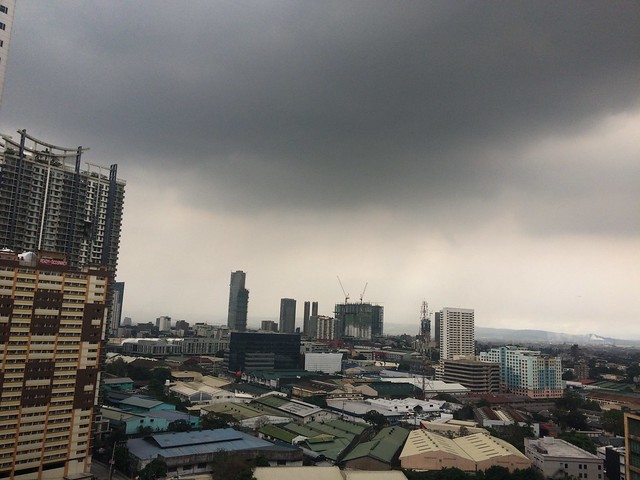Tuesday, July 31, 2018
Monday, July 30, 2018
Reading sci-fi
Jessica Zafra calls Dune by Frank Herbert "possibly the greatest science-novel ever written." I read the book in 2014, which introduced me to the world of science fiction, excellent pieces of literature. From then on, I read Ursula Le Guin and Philip K. Dick. I should read the sequel to Dune.
Saturday, July 28, 2018
Organic material
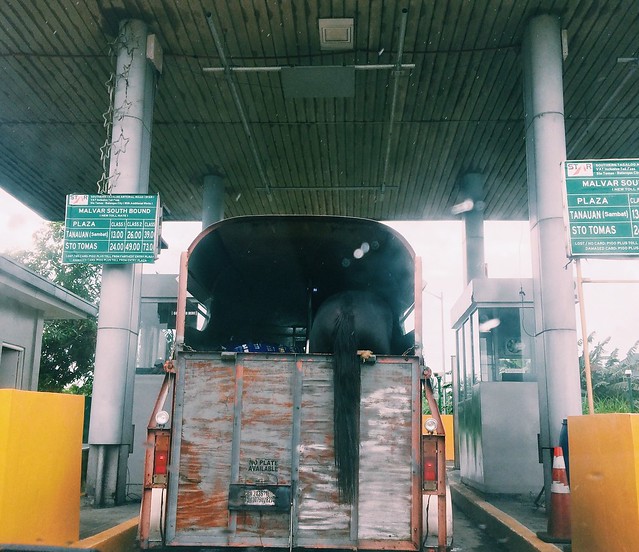
Fecal material was just about to emerge from the horse's ass (which reminds me of a fable we talked about in high school)—this from a vehicle we were tailgating in South Luzon Expressway, during our transit to Malvar, Batangas. I was with Casti Castillo and Carlo de Guzman, among my dearest friends from med school, and we visited Bon's idyllic hometown. It was so refreshing not to see photos of our reunion online; they're not those kinds of people. But the memory lingers. I hope to see them again in the future, during better, happier times.
Friday, July 27, 2018
Shoes my brother "gave" me
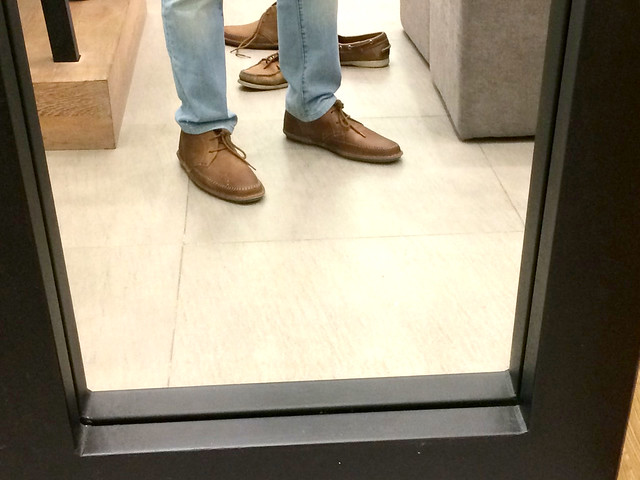
My kid brother Sean hands me some money and tells me, "Ibakal mo na sang sapatos mo ha." ("Use the money to buy new shoes.") Sentimentality runs deeply in the family, but with it is pragmatism. Our household has a rule: if you want to make a family member happy, tell him exactly what it is that you want—or better yet, give him the money so he can buy the item himself. This came to be because we never bought jeans for Tatay nor shoes for Nanay—they'd rather that they choose those things themselves. This practice sucks all the surprises in life, but we never liked to be surprised—at least, as a far as material goods are concerned.
My brothers are the most generous; they think of me as the doctor-in-training who borders on mendicancy, a fact I don't contest. I didn't make it to the Singapore trip with my brothers last month—I was too swamped with work, and I already took many days off the clinics to attend to my father's funeral. When they got back, Sean gave me money and said I should buy the shoes I told him to buy for me—he had no idea what they were.
Thanks, Sean! I thank God for my brothers. I see a lot of myself in them—we have the same facial expressions, hand gestures, and humor. It's unnerving sometimes.
Thursday, July 26, 2018
What the Bible teaches about sexuality

Commenting on the Times article by Dr. Idan Dershowitz (The Secret History of Leviticus), Dr. Albert Mohler writes:
Every single text in the Bible that speaks of same-sex sexual desire and same-sex sexual behaviors condemns them. In Leviticus 18:22, the condemnation extends to the use of the word abomination. Dershowitz argues that Leviticus 18:22 is “the principal prooftext” against homosexuality, and that is true for the Old Testament. In the New Testament, Paul takes the argument far beyond Leviticus. Trained as a rabbi and a teacher of the Scriptures, in Romans 1:18-32 Paul goes beyond a condemnation of males having sex with males. He also condemns women who have sex with women, exchanging “natural relations for those that are contrary to nature,” even as in male homosexuality the natural use of the woman is exchanged for “shameless acts with men.” Paul also makes clear that same-sex passion and desire is also sinful, contrary to both nature and divine command. For Christians, the most significant realization is that the crucial moral teachings of the Old Testament Holiness Code that are binding upon us are repeated, and often amplified, in the New Testament. Christians may eat shrimp without sin, for example, but are fully bound by laws against any sexual activity outside of marriage, the covenant union of one man and one woman.
Dr. Mohler adds:
There is no real question about what the Bible teaches about human sexuality and gender. There is also no question about the influence of the Bible on Western civilization. Even now, the Bible exerts a powerful hold on the modern conscience, even when it is not acknowledged. That is extremely frustrating to the moral revolutionaries.
This very Christian view of homosexuality is alienating and offensive to the modern world, but we're called to stand by and with Scripture, to live in the world but not of it. Loving in the truth is the best way of showing love.
Photo: Samuel McAdam
Labels: faith
Wednesday, July 25, 2018
Wokeness is the new fruit of the Spirit, according to a Galatians update
An update from the Babylon Bee, which always makes me laugh!
It ends thus:
I'm always grateful that my readers are the kind who don't need to be reminded of what satire means. [Use "satire" in a sentence. Response: "I'm satire." (Trans. Pagod ako.)]
PORTLAND, OR—A coalition of progressive Bible scholars convened in Portland this week and agreed to add a new fruit of the Spirit to the biblical list in Galatians 5: “wokeness.”
According to the resolution, being “woke” is an essential part of being a Christian, and anyone who’s not on board with the social agenda and policies of the Left is not exhibiting the proper fruit of the Spirit in their lives.
It ends thus:
“Be on your guard, for fellow left-leaning social justice advocates prowl about like a roaring lion, looking for someone to call out for not being woke enough,” Patterson cautioned. “If you make one wrong move, we will eat you alive.”
I'm always grateful that my readers are the kind who don't need to be reminded of what satire means. [Use "satire" in a sentence. Response: "I'm satire." (Trans. Pagod ako.)]
Labels: daily
Tuesday, July 24, 2018
Math problem set
I'm taking my masters again, and it feels good to be back inside a "classroom." Here's a throwback to 2005, my problem set in Math during my college days.
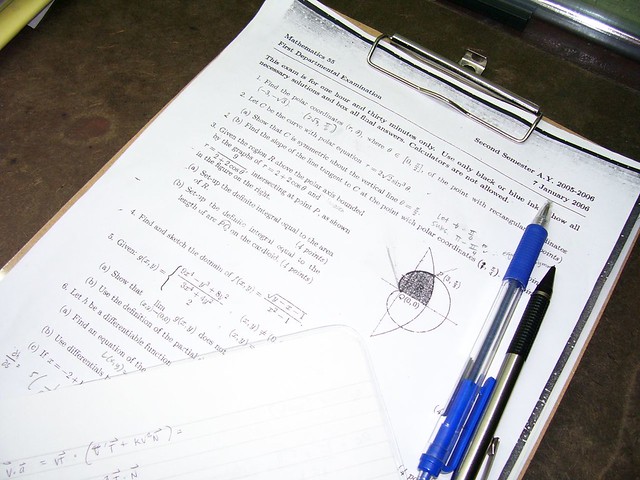

Labels: daily
Monday, July 23, 2018
Quiapo
Joseph Pascual is a favorite photographer. His Flickr collection, Quiapo Crowds, feels so alive. He is able to bring out the colors, grime, and humidity of old Manila.

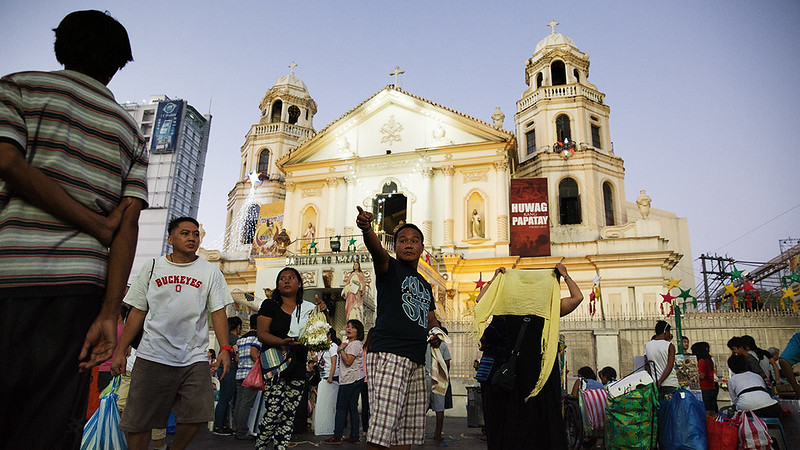
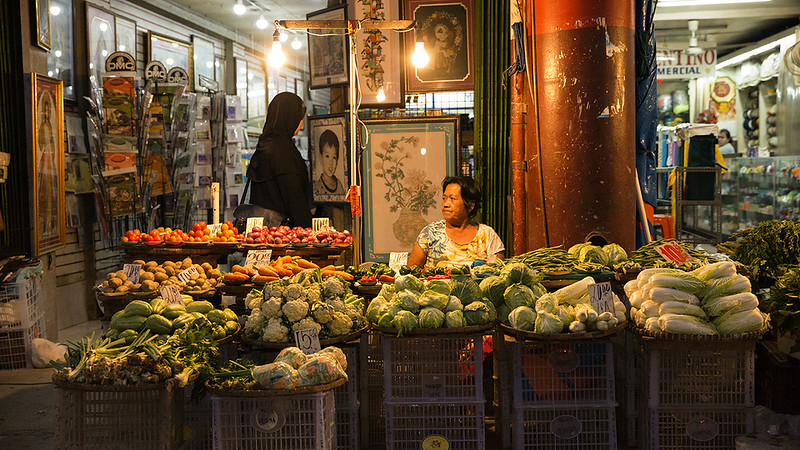
I pass by Quiapo when I travel from Manila to Quezon City. I know the place because of the optical shops where one can get frames cheaply. In first year med school, we interviewed vendors for a class called Medical Anthropology, where we were offered herbs and candles for almost any type of ailment. Concoctions for abortion, for increasing sexual performance, and for growing taller were also popular.



I pass by Quiapo when I travel from Manila to Quezon City. I know the place because of the optical shops where one can get frames cheaply. In first year med school, we interviewed vendors for a class called Medical Anthropology, where we were offered herbs and candles for almost any type of ailment. Concoctions for abortion, for increasing sexual performance, and for growing taller were also popular.
Labels: daily
Sunday, July 22, 2018
Monday blues
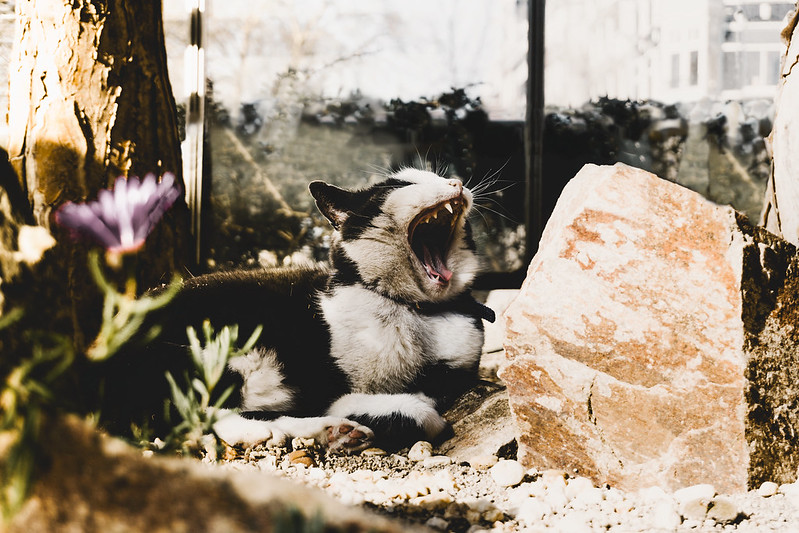
Photo credit: SimonSCh, via Flickr
Mondays are not dreadful but are generally exhausting. Patients who didn't get to see their doctors over the weekend are likely to consult on the first work day of the week. Patients on follow up are also likely to pop up in the consultation rooms, usually to get over the inconvenience of things medical, leaving the rest of their weekly calendars clear of clinical obligations. The concept of Monday as a busy working day used to be an abstract idea--I never held out-patient clinics on Mondays during my residency in Internal Medicine--but weeks into my clinical fellowship in Oncology, I've relearned my lesson the hard way: don't pack my Mondays with chemotherapy sessions. This allows me more time to see new patients, see in-patient referrals, and finish some paperwork, without compromising the quality of the care I give (or so I believe).
This means I prefer staying at home on Sunday evenings, to catch up on sleep, reading (both for pleasure and work, which are not mutually exclusive), and other miscellaneous things weekends allow me to do. Sunday afternoons are when I write in this little nook of the Web; if I have the extra energy, I write blog posts in advance, in anticipation of days when I'm too tired to even open my computer.
So let me do a little introspection and share with you a useful and refreshing article by Pastor Oscar Villa, where he writes about work.
I used to think that work was a necessary evil—something that I had to do, instead of something that I got to do. I thought that there wouldn’t have been any need to labor and toil, if it hadn't been for humanity’s fall into sin. I imagined that if one were wealthy, then he wouldn’t have to work. Imagine my surprise as I sat under Bible teaching that pointed to work even before sin had entered into the world.
A couple of observations from the Creation narrative in Genesis 1-3 can help us think more clearly about work.
That God was Himself a worker is an important theological point that gives us, human beings, who toil under the sun, the comfort that He knows what we go through.
Labels: faith
Reading can make you happy
A personal account by Ceridwen Dovey, where she also traces the history of bibliotherapy.
I know this for a fact, but the practice is secondary to the object of reading. That is, what matters more is what you read. You can, for example, read a lot of nonsense, of which there is no lack, and the exercise can make you miserable. But if you turn to good books--materials that make you think, introspect, criticize, evaluate, cry, laugh, and best of all, wonder--then reading can potentially give you happiness.
On top of my head: Philippians, written by Paul during his imprisonment in Rome, Confessions by St. Augustine, An Artist of the Floating World by Kazuo Ishiguro. I'm sure there's so much more.
Several years ago, I was given as a gift a remote session with a bibliotherapist at the London headquarters of the School of Life, which offers innovative courses to help people deal with the daily emotional challenges of existence. I have to admit that at first I didn’t really like the idea of being given a reading “prescription.” I’ve generally preferred to mimic Virginia Woolf’s passionate commitment to serendipity in my personal reading discoveries, delighting not only in the books themselves but in the randomly meaningful nature of how I came upon them (on the bus after a breakup, in a backpackers’ hostel in Damascus, or in the dark library stacks at graduate school, while browsing instead of studying). I’ve long been wary of the peculiar evangelism of certain readers: You must read this, they say, thrusting a book into your hands with a beatific gleam in their eyes, with no allowance for the fact that books mean different things to people—or different things to the same person—at various points in our lives. I loved John Updike’s stories about the Maples in my twenties, for example, and hate them in my thirties, and I’m not even exactly sure why.
But the session was a gift, and I found myself unexpectedly enjoying the initial questionnaire about my reading habits that the bibliotherapist, Ella Berthoud, sent me.
I know this for a fact, but the practice is secondary to the object of reading. That is, what matters more is what you read. You can, for example, read a lot of nonsense, of which there is no lack, and the exercise can make you miserable. But if you turn to good books--materials that make you think, introspect, criticize, evaluate, cry, laugh, and best of all, wonder--then reading can potentially give you happiness.
On top of my head: Philippians, written by Paul during his imprisonment in Rome, Confessions by St. Augustine, An Artist of the Floating World by Kazuo Ishiguro. I'm sure there's so much more.
Labels: books/reading
Saturday, July 21, 2018
The bar
Tokyo is on my travel wishlist. Japan fascinates me. Since my college years, and until recently, I've followed Lee Chapman's Tokyo Times blog, where he shares photos of the every day in one of the world's busiest cities.
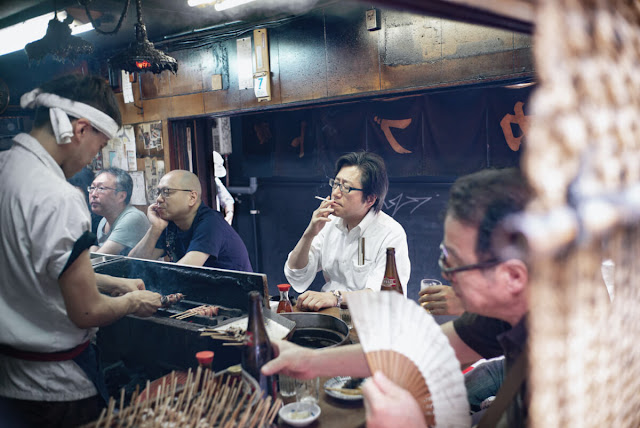
I'm in no way endorsing smoking--if you're a smoker, please quit right away, for your sake and your family's--but there's something to this photo that I can relate to. Maybe it's the tired, exhausted, but peaceful feeling of having done a day's job, and the chance to unwind a little before heading home.
His collection, The Bar, shows the warmth of human companionship and the familiar feeling of strangeness.

I'm in no way endorsing smoking--if you're a smoker, please quit right away, for your sake and your family's--but there's something to this photo that I can relate to. Maybe it's the tired, exhausted, but peaceful feeling of having done a day's job, and the chance to unwind a little before heading home.
Labels: daily
Saturday, July 14, 2018
Life, in photos
Almost halfway through July, my phone shows me snippets of my life: mostly from work (morning rounds, outpatient chemotherapy and follow ups), Thursday and Friday masters classes, and church.
I told the Grab driver last week, "I live a boring life, and I like it," when he asked me if I had ever smoked. I warned him that he might end up in my clinic someday, and that, at 39 years old, with a four-year old son and a working wife, it's not too late to quit. I slept through that ride, only to be awakened by honking buses in the glorified parking space called EDSA. The last thirty minutes of the trip was when we had a conversation and I learned that, like me, he had not yet eaten lunch. I gave him the sweet banana that my stage IV colon cancer gifted me.
The ride typifies my existence. I'm swamped in work and study. When I look out the window, life pretty much goes on for the rest of the world. I'm not busy--just exhausted. The exhaustion is of a good kind. And the good Lord provides strength each day.
* * *
Last week was the introduction of new fellows in the Department of Medicine. Here are my friends and colleagues from Medical Oncology: Roger Velasco, myself, Karen M. Mondragon, Rich King (his real name), and Fred Ting. I'm hashtag blessed to be working with them.
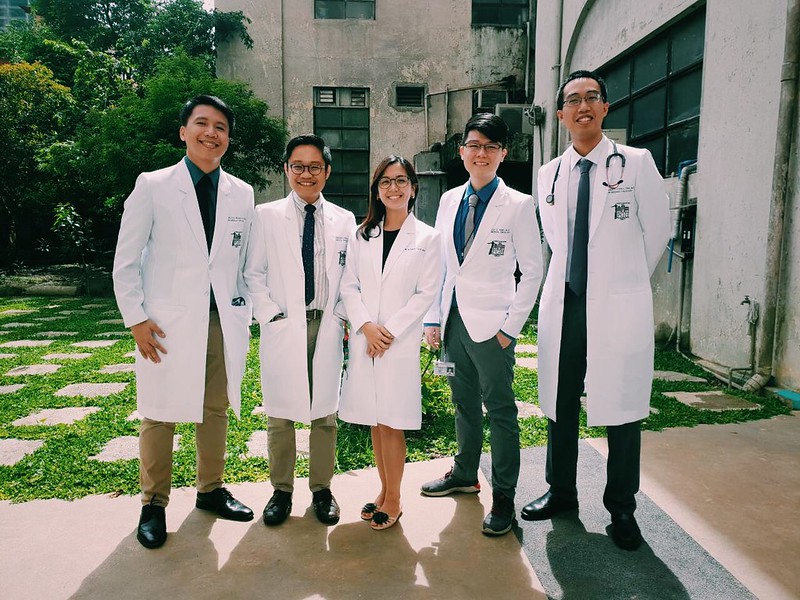
I spotted Roger and Anna talking in the corridor. They looked so happy. If you tease Roger, he will likely tell you that I'm making this up, and I won't confirm nor deny if this is, in fact, the truth.
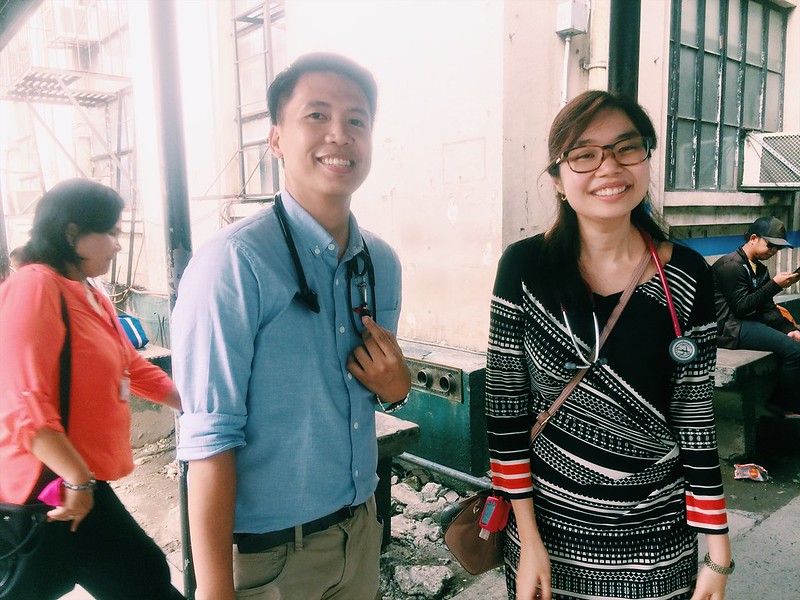
Karen receives her publication award from no less than Mang Intay, who works in the Section of Medical Oncology office and who also doubles as a Grab driver at night.
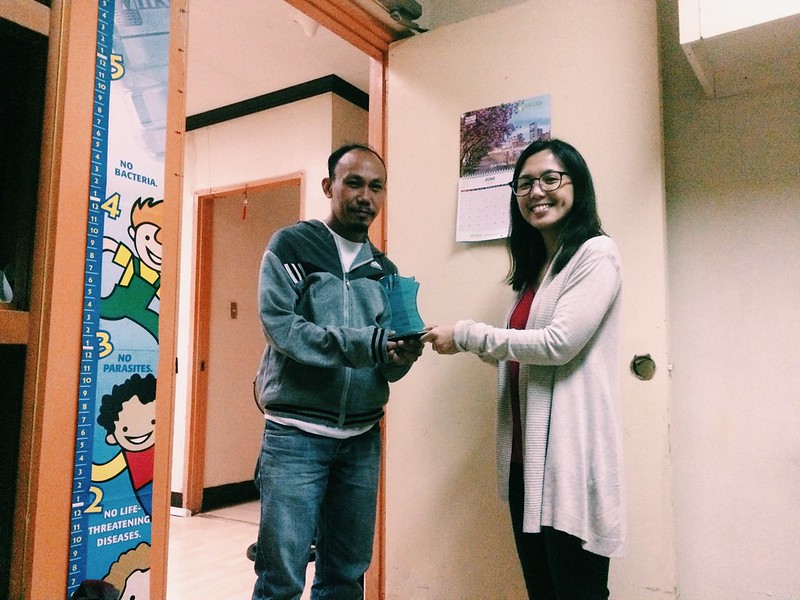
After a grueling day at the clinics, we ate at a Thai restaurant. Freddie, where were you? Karen was already at home, playing with her beautiful daughter.
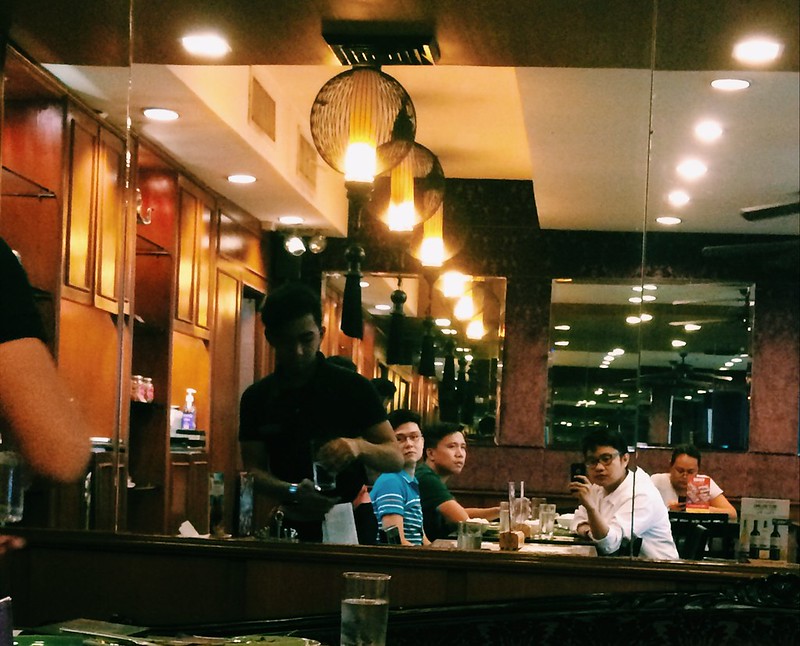
Rog and Rich look on as Dr. Sacdalan discusses platinum analogs and their role in chemotherapy. On Fridays, Dr. Fernando meets us to help us with some difficult cases we encounter. This open, collegial, academic, and non-judgmental atmosphere is what I like best about where I train. No question is too stupid, and even our mentors ask each other questions.
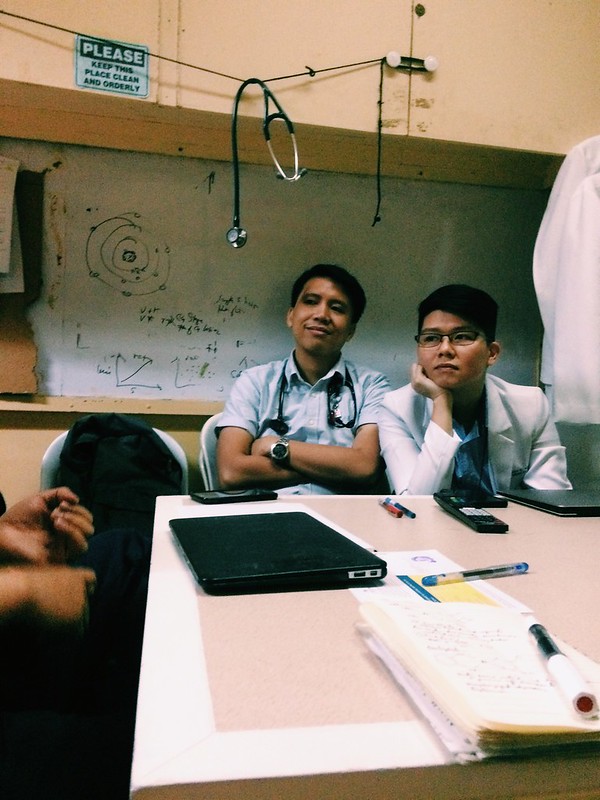
When it rains, it's four. (It was around four when this was taken.)
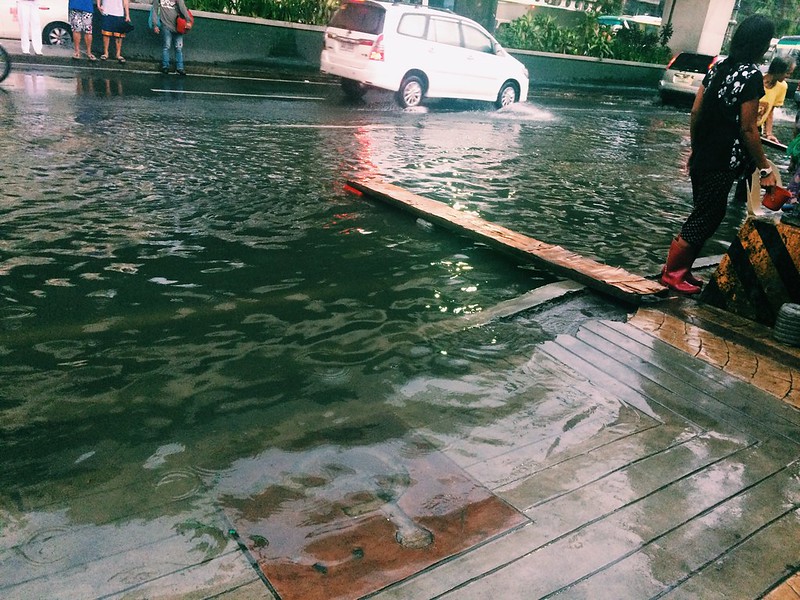
Food usually marks the end of the day. At a hotel in Ortigas, my colleagues Norman Cabaya, Paulo Vergara, and Bobby de Guzman sample the food.
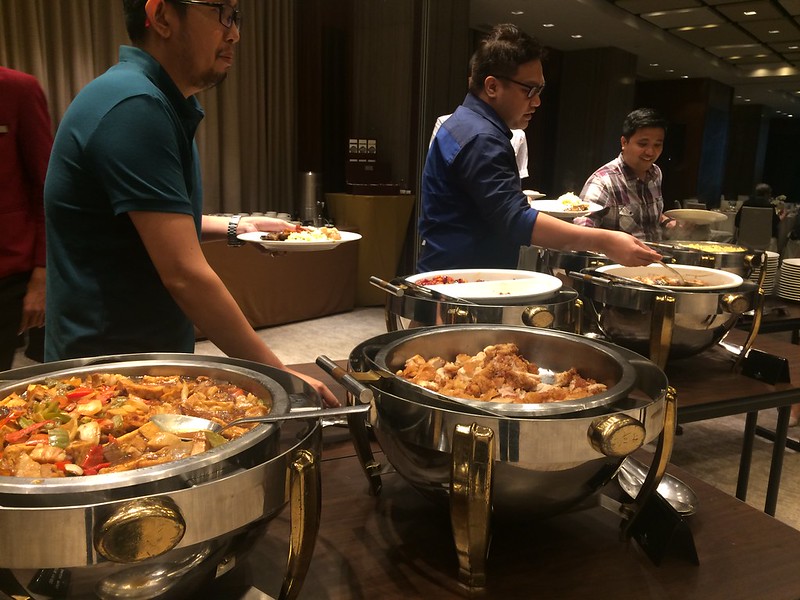
My brother prepares dinner for me when I get back home. This tasted amazing.
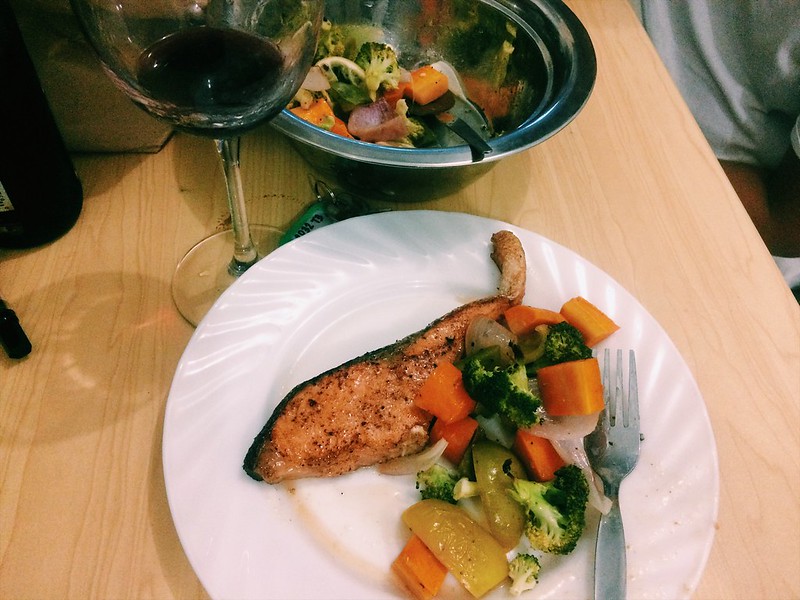
I told the Grab driver last week, "I live a boring life, and I like it," when he asked me if I had ever smoked. I warned him that he might end up in my clinic someday, and that, at 39 years old, with a four-year old son and a working wife, it's not too late to quit. I slept through that ride, only to be awakened by honking buses in the glorified parking space called EDSA. The last thirty minutes of the trip was when we had a conversation and I learned that, like me, he had not yet eaten lunch. I gave him the sweet banana that my stage IV colon cancer gifted me.
The ride typifies my existence. I'm swamped in work and study. When I look out the window, life pretty much goes on for the rest of the world. I'm not busy--just exhausted. The exhaustion is of a good kind. And the good Lord provides strength each day.
* * *
Last week was the introduction of new fellows in the Department of Medicine. Here are my friends and colleagues from Medical Oncology: Roger Velasco, myself, Karen M. Mondragon, Rich King (his real name), and Fred Ting. I'm hashtag blessed to be working with them.

I spotted Roger and Anna talking in the corridor. They looked so happy. If you tease Roger, he will likely tell you that I'm making this up, and I won't confirm nor deny if this is, in fact, the truth.

Karen receives her publication award from no less than Mang Intay, who works in the Section of Medical Oncology office and who also doubles as a Grab driver at night.

After a grueling day at the clinics, we ate at a Thai restaurant. Freddie, where were you? Karen was already at home, playing with her beautiful daughter.

Rog and Rich look on as Dr. Sacdalan discusses platinum analogs and their role in chemotherapy. On Fridays, Dr. Fernando meets us to help us with some difficult cases we encounter. This open, collegial, academic, and non-judgmental atmosphere is what I like best about where I train. No question is too stupid, and even our mentors ask each other questions.

When it rains, it's four. (It was around four when this was taken.)

Food usually marks the end of the day. At a hotel in Ortigas, my colleagues Norman Cabaya, Paulo Vergara, and Bobby de Guzman sample the food.

My brother prepares dinner for me when I get back home. This tasted amazing.

Labels: daily
Where is thy sting?
Dr. John Macarthur on fearing death.
...Christians should not fear death. They should long “to depart and be with Christ, for that is very much better” (Philippians 1:23). That does not mean, of course, that they are to be foolishly reckless or careless with their lives; their bodies belong to God (1 Corinthians 6:19–20). But an obsessive concern for one’s physical well-being or a morbid fear of death is inconsistent with a Christian perspective. Believers should long for heaven like a prisoner longs for freedom, like a sick man longs for health, like a hungry man longs for food, like a thirsty man longs for a drink, like a poor man longs for a payday, and like a soldier longs for peace. Hope and courage in facing death is the last opportunity for Christians to exhibit their faith in God, to prove their hope of heaven is genuine, and to adorn their confidence in the promises of God.
Labels: faith
Sunday, July 8, 2018
Scalia speaks

Christopher Scalia, son of the late US Supreme Court Justice Antonin Gregory Scalia, wrote this about his father's death.
I also learned about his childhood. Although he had shared stories about playing stickball in Queens, he never went into much detail about the different ways he and his neighborhood friends entertained themselves. Perhaps, like me, you'll see these scenes play out in black and white, like something from a classic film. And perhaps, like me, you'll find his tributes to departed friends especially powerful. In those, my father conveys what he admired in other people and what he most appreciated in personal relationships. His sorrow at the death of one friend particularly moved me, as my father expresses regret at "not...say[ing] goodbye. But I have the sure hope that I will see him again where old friends will have an eternity to catch up and make amends." These words mirror my own feelings after the death of the man who wrote them.
I teared up in the early morning train ride as I read this. Tatay, too, regaled us with stories about his own childhood, growing up in Esperanza, Sultan Kudarat, before relocating to Polomolok, South Cotabato, where my cousins still reside. I missed Tatay because I imagined his personality--fun-loving, gregarious, jocular--was similar to Justice Scalia's. My father wasn't quite as articulate, of course--he asked me to draft his speeches for him, usually for weddings where he was requested to be a ninong--but he, too, was full of joie de vivre, still smiling during his final moments of consciousness.
Memories come like floods, washing over me, an incomparable feeling of sorrow, longing, and joy that perhaps only people who had lost precious people in this life would know. My hope is that, when the Lord takes me home, I'll see my father again, feel his embrace, and hear his warm laughter.
Meanwhile, I return to Scalia Speaks, a collection of Justice Scalia's speeches on topics such as the meaning of being an American, faith, and friends.
Labels: books/reading
Saturday, July 7, 2018
Where I am
I'm almost finished seeing close to forty patients this morning, all of them with some form of malignancy in varying degrees of curability, some resigned to the idea that the days are getting shorter, and the end is nearer. It was a little past seven o'clock when I began my rounds. It rained outside: the sky was dark and sleepy, like winter mornings in Amsterdam, and the only thing missing was a cup of hot chocolate, a good book, and a pair of pajamas. The patients, too, were in good spirits, even if some of them felt pained. I met an entire family at the seventh floor. The children looked apprehensive for their age: they should be hanging out with friends instead of visiting their brother in the hospital for his third chemotherapy session. But cancer does that: not only does it distort the body in the cellular and molecular level—it is, by definition, a distorted version of humanity—it also transforms families and communities. I often wonder, as we all should, why I am where I am now. But wonder always gives way to fascination, hope, and faith in Providence whose hand is never too short to extend comfort, joy, and encouragement that transcends human understanding.

Salted egg my patient prepared for me

Salted egg my patient prepared for me
Labels: medicine
Dealing with grief
How to Discourage a Grieving Friend by Vaneetha Rendall Risner.
She ends with this:
When we analyze grieving people, we add to their burden. Everyone processes loss differently, whether they are grieving the loss of a loved one, loss of health, lost relationships, or even lost dreams. Offering suggestions can feel like judgment, and careless words can cut deeply. We can become like Job’s comforters, who went on and on, speaking about things they neither knew nor understood.
She ends with this:
It’s easy to discourage a struggling friend. Trust me, I know. But I’m challenging you, me, all of us, to put down our expectations of our suffering friends. Let’s stop trying to “fix” them. Don’t bludgeon them with theology. Trust that God is working in them, and be patient while they process.
Instead, let’s sit with our friends. Cry with them. Support them as they grieve. They need grace to heal. Remember, we don’t need to be a savior for our grieving friends. They already have One — and so do we.
Labels: faith
Friday, July 6, 2018
As long as you are glorified
As Long As Your Are Glorified by Sovereign Grace Music.
Are You good only when I prosper
And true only when I’m filled?
Are You King only when I’m carefree
And God only when I’m well?
You are good when I’m poor and needy
You are true when I’m parched and dry
You still reign in the deepest valley
You’re still God in the darkest night
What a God we serve.
Labels: film/music
Thursday, July 5, 2018
Security and confession
John Calvin on confession:
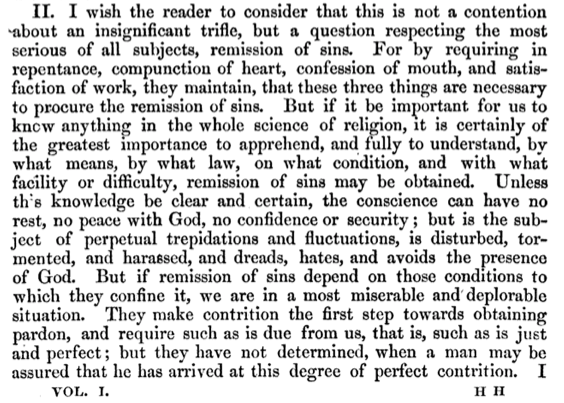
"Unless this knowledge be clear and certain, the conscience can have no rest, no peace with God, no confidence or security...."—this must be the reason why believers feel unburdened after coming to the cross. If our eternal destiny depended on us, John Calvin writes that we "are in a most miserable and deplorable situation." God, through Jesus' vicarious death and sacrifice, provides security of salvation, grounded on faith in him and not in our good works.
I'm more than halfway through The Institutes by John Calvin; it is a thick book. I read chunks of paragraphs during commutes, and it has added great riches to my spiritual life. It is one of my favorite books of all time.

"Unless this knowledge be clear and certain, the conscience can have no rest, no peace with God, no confidence or security...."—this must be the reason why believers feel unburdened after coming to the cross. If our eternal destiny depended on us, John Calvin writes that we "are in a most miserable and deplorable situation." God, through Jesus' vicarious death and sacrifice, provides security of salvation, grounded on faith in him and not in our good works.
I'm more than halfway through The Institutes by John Calvin; it is a thick book. I read chunks of paragraphs during commutes, and it has added great riches to my spiritual life. It is one of my favorite books of all time.
Labels: faith
Wednesday, July 4, 2018
Chemotherapy hits closer to home

Photo Credit: Vincent Burron (via Flickr)
Yesterday was the first time I did chemotherapy on a colleague's parent.
Labels: medicine
Tuesday, July 3, 2018
Love, defined
Exhorting from 1 Timothy 1:1–11, Deni Koswardi said during the Sunday worship service that "love is expressing the standards of God in our treatment of one another." This resonates with Jesus' command to love others as we love ourselves. I've realized that most of the time I refer to love as a noun rather than a verb, when it should, I suppose, be the reverse.
Labels: faith
Monday, July 2, 2018
Memories of Prague

I wish I had spent more time in Prague. It is one of the most beautiful places I've been to.
Labels: daily
Sunday, July 1, 2018
How to deal with emergencies during flights
I know of friends who encountered medical emergencies during flights. As doctors committed to helping others, they volunteered their services mid-air (a case of pulmonary embolism and acute coronary syndrome, as far as I can remember) and were surprised to be rewarded with round-trip tickets. None of my flights have been as memorable.
Dr. Rachel Zang's experiences are featured in an interview published in JAMA [1].
Problems arise because of body changes caused by high altitudes:
Some of her recommendations include the formation of a governing body to mandate the procurement of necessary medical equipment, lots of IV cannulas, lots of IV fluids, obstetric and pediatric medications, anti-emetics, and a glucometer.
[1] Voelker R. “Is There a Doctor on the Plane?”. JAMA. Published online June 27, 2018. doi:10.1001/jama.2018.6654
Dr. Rachel Zang's experiences are featured in an interview published in JAMA [1].
As a frequent traveler—she has been to 30 countries, including medical missions to Tanzania and Rwanda—Zang wanted to be better prepared when the next in-flight medical emergency crops up. She researched domestic and international laws and learned what those airline medical kits are supposed to contain and what they lack.
In fact, Zang amassed so much material that she shared it with her colleagues during a grand rounds on in-flight medicine.
“Lots of people were interested,” she says. “[I]t’s something everyone’s a little uncomfortable with … so they want to know as much information as they can about it.”
Problems arise because of body changes caused by high altitudes:
The airplane causes a lot of unique changes in the body that we're not really aware of. Being on a flight is the equivalent to being at 6000 to 8000 feet of altitude. At sea level, oxygen saturation in all of us healthy people is 99% to 100%, but when we go up into the air, most of us would be about 92% to 95%. So you can see how anyone who had underlying respiratory or cardiac issues, if their oxygen saturation drops lower, it's going to exacerbate angina or make their COPD [chronic obstructive pulmonary disease] or asthma worse. In turn, the very low humidity in the airplane has been shown to exacerbate asthma and COPD because of the increased dehydration and the increased mucosal dryness.
Some of her recommendations include the formation of a governing body to mandate the procurement of necessary medical equipment, lots of IV cannulas, lots of IV fluids, obstetric and pediatric medications, anti-emetics, and a glucometer.
[1] Voelker R. “Is There a Doctor on the Plane?”. JAMA. Published online June 27, 2018. doi:10.1001/jama.2018.6654
Labels: medicine

